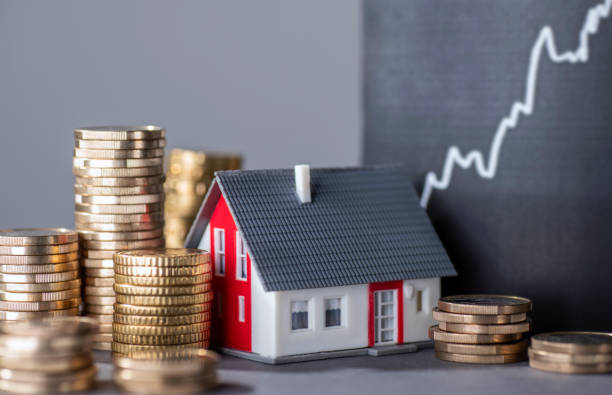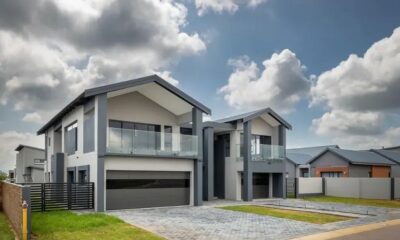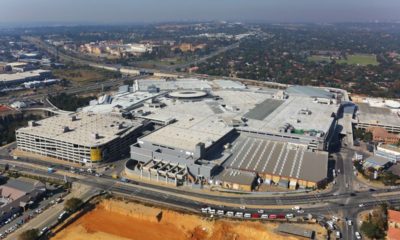Best of Johannesburg
How Much You Really Need to Earn to Afford a House in South Africa

Buying a home in South Africa might feel like a pipe dream to many. Between rising living costs, interest rates, and the property market’s uneven terrain, getting your foot on the ladder can seem impossible without a six-figure salary. But is it really that unreachable?
We took a deep dive into the latest data and bank requirements to unpack what you truly need to earn if you’re hoping to call yourself a homeowner in Mzansi in 2025.
It’s Not One Number Fits All
The short answer: There is no universal “magic number” salary that guarantees you can buy a house. It depends heavily on where you’re buying, your credit score, how much deposit you can put down, and whether you’re applying for a loan, grant, or both.
But let’s cut to the chase. Here’s what you’re looking at if you’re buying with no frills or freebies:
-
In Gauteng, where prices are relatively lower, the average home goes for around R620,000. To buy this, you’d need to earn at least R20,600 per month.
-
In the Western Cape, where housing costs are steeper, you’ll need to earn R22,600 monthly to afford the average R680,000 property.
-
A home loan without a deposit? You’ll need a monthly take-home salary between R12,500 and R22,600, depending on the bank and the home value.
What About the Big Cities?
For buyers looking to plant roots in SA’s major metros, it gets more complicated. Here’s a look at what the numbers say about some of the most sought-after cities:
-
Cape Town’s average property price usually ranges from R2 million to R3.5 million, depending on the area and property type. You would need to earn around R70,000 to R120,000 per month to qualify for financing in typical areas.
-
Johannesburg’s average property price is closer to R1.3 million to R1.5 million, with entry-level homes costing less. A monthly salary between R40,000 and R50,000 would generally be required.
-
Durban remains relatively affordable, with homes averaging around R1.5 million. You’d need about R49,900 monthly to secure financing.
Of course, these are just averages. More affordable areas and developments exist, but if you’re aiming high or seeking luxury and security, those salary ranges represent the playing field.
Have Savings? Here’s How That Helps
If you’ve been tucking money away every month, you’re in luck. A deposit between 10% and 20% of the home’s value can dramatically lower how much you need to earn to qualify for a home loan.
Let’s say you’re eyeing a R700,000 property. With a 10% deposit of R70,000, your required monthly salary drops significantly because your home loan amount is now smaller and more manageable. It also improves your chance of approval with the bank.
No Deposit? You Might Still Qualify
Banks in South Africa occasionally offer 100% home loans, especially to first-time buyers. While rare, they do exist. However, expect tougher requirements in terms of salary and credit history.
Most banks will calculate affordability based on a 20-year loan term at the current prime lending rate, which is around 10.75% as of mid-2025. Your monthly income must cover both the loan repayment and your basic living expenses.
Can You Buy a House on a Single Income?
Yes, and it’s more common than you might think. According to RE/MAX South Africa, over 40,000 single women and 35,000 single men bought property in recent years. Whether you’re a young professional or a newly single parent, you can qualify solo if your income meets the lender’s requirements.
Government Grants: The FLISP Factor
If your monthly income falls between R3,501 and R22,000, you might be eligible for FLISP, a government subsidy for first-time buyers. It bridges the gap between what you can afford and the property value by contributing to your deposit or home loan.
This programme has helped thousands of South Africans who wouldn’t otherwise be able to enter the housing market. It’s worth exploring if your salary is on the lower end of the bracket and you’re struggling to save for a deposit.
Foreigners Can Apply Too
South Africa also welcomes foreign buyers. Major banks such as Absa, Standard Bank, and FNB offer tailored home loan packages for non-citizens. Just be prepared to put down a larger deposit, sometimes up to 50% of the home’s value.
So, Is It Easier or Harder to Buy in 2025?
According to Ooba’s chairman, it’s actually easier now than it was pre-COVID, thanks to adjusted bank lending criteria and government assistance. The key is understanding your salary range, knowing where you stand with credit, and finding the right support, whether it’s a broker, a grant, or a flexible lender.
Also read: How to Tell If Your Area Is Flood-Prone Before Moving to or Living in Joburg 2025
Follow Joburg ETC on Facebook, Twitter, TikTok and Instagram
For more News in Johannesburg, visit joburgetc.com
Source: Inquire Salary
Featured Image: iStock























